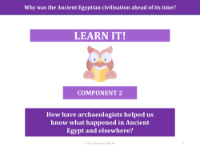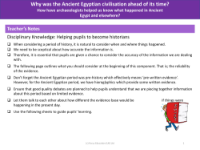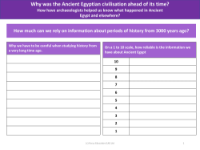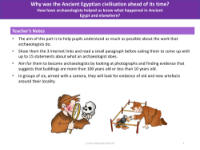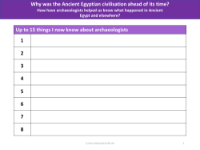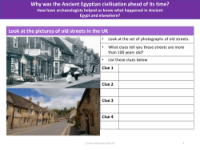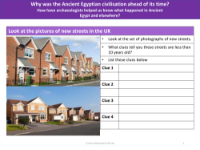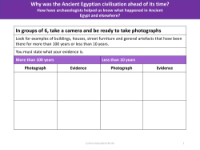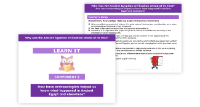How reliable are different types of information? - Ancient Egypt
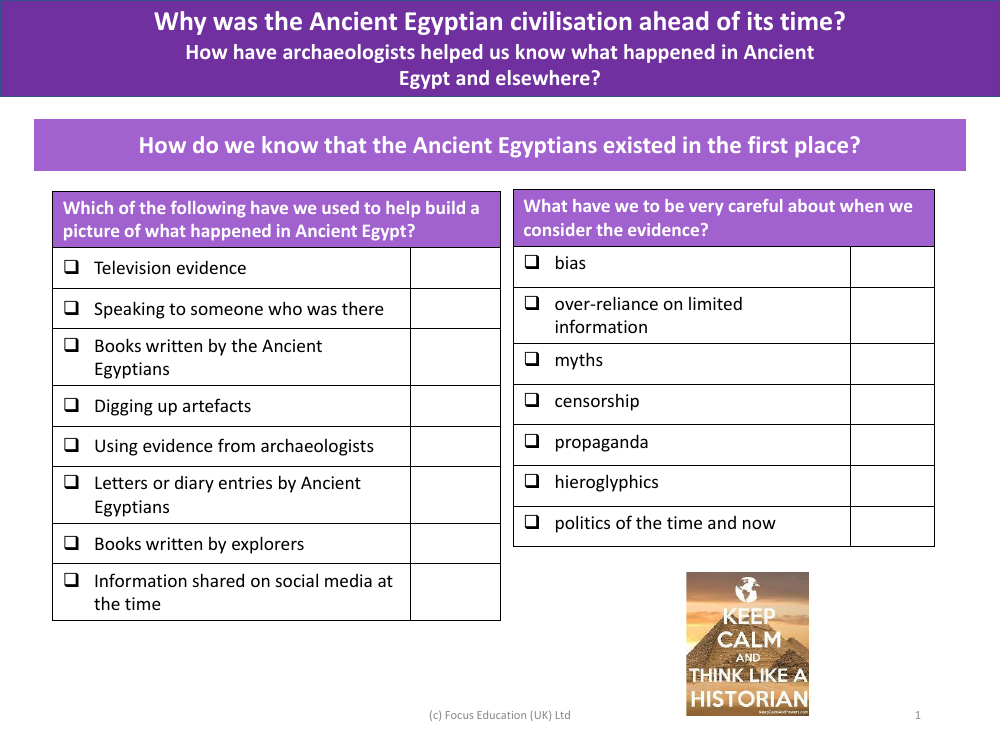
History Resource Description
The existence of the Ancient Egyptians is a well-established historical fact, substantiated through various forms of evidence that help to paint a vivid picture of their civilisation. To understand what happened in Ancient Egypt, scholars and historians have relied on tangible evidence such as artefacts unearthed during excavations, and the extensive work of archaeologists who meticulously study these findings. Additionally, books written by the Ancient Egyptians themselves, including religious texts and administrative records, provide direct insight into their culture, beliefs, and daily life. Contributions from explorers who documented their discoveries have also been invaluable in expanding our knowledge of Ancient Egypt.
When evaluating the evidence of Ancient Egypt, it is crucial to consider certain factors that may affect its reliability. Bias can influence the way information is presented, while an over-reliance on limited information can skew the broader understanding of the civilisation. Myths and propaganda, often perpetuated over centuries, can distort historical truths, and censorship may have led to the omission of critical details. The interpretation of hieroglyphics, the written language of the Ancient Egyptians, requires careful analysis to ensure accuracy. Additionally, the politics of the time when the evidence was produced, as well as contemporary politics, can impact the interpretation of historical data. Archaeologists play a key role in mitigating these issues by applying rigorous scientific methods to their research, allowing us to form a more accurate picture of Ancient Egyptian society and its advancements.
